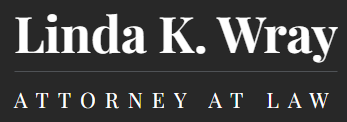Have You Got A Will? Is It Up To Date?
A will is a legal document that allows you to transfer your property at your death. Having a will ensures that your money, property and personal belongings will be distributed as you wish after your death. Without a will, a court will follow Minnesota’s intestacy laws to make those decisions in your place. Particularly where relationships and alliances have changed, a will can give you control over how your estate will be divided, after you are gone.
Trusts Tackle Unique Situations
There are several types of trusts. A testamentary trust is set up under a will and is usually funded from the assets of the testator (the creator of the will), upon the testator’s death. A testamentary trust often is used to provide for the minor children of the testator, but also can be set up to provide for the surviving spouse, other family members, friends or anyone designated by the testator. The trustee of the trust manages the trust assets and distributes the assets per the instructions of the testator, as set out in the trust provisions of the will. The benefit of the testamentary trust is to ensure that the assets of the grantor are managed to provide for the beneficiaries of the grantor in a manner determined by the grantor, with less initial work on the part of the grantor. The assets of the grantor remain in the hands of the grantor until his/her death, when the trust becomes irrevocable. The testamentary trust will not take the assets out of the estate, for tax purposes, as the grantor maintains control until his/her death or incapacity.
Living Trusts Can Be Used To Avoid Probate
A living trust, or “inter vivos” trust, which is often referred to as a revocable trust, is set up during the lifetime of the settlor (the creator of the trust). A trust set up as a revocable trust can be changed by the settlor at any time prior to his/her death or incapacity. The trustee of the trust can be the settlor, with another person serving as co-trustee or successor trustee, to take over in the event that the settlor is no longer able or willing to handle the management of the trust. The revocable trust often is used to avoid probate of a will. However, it is necessary/advisable to set up a pour-over will, to insure that no assets are left out. The pour-over will acts to “pour over” any assets left out of the initial funding of the trust, or acquired later, that are not addressed in the language of the trust. A revocable trust is advised when the settlor owns property in another state, as placing that property in trust avoids the necessity of a separate probate in the other state, and allows the property to be distributed or managed according to the terms of the trust. A revocable trust also can be helpful in the event of the incapacity of the settlor. Management of the settlor’s assets by the successor trustee is sometimes preferable to the action of an attorney in fact under a durable power of attorney. Also, the power of the trustee continues after the death of the settlor, while the power of the attorney in fact is limited to a period of incapacity of the individual and does not survive death.
Our estate planning lawyer is knowledgeable and compassionate. To schedule an appointment to discuss your options, please contact us online or call 952-806-9900. There is no charge for your initial consultation.






